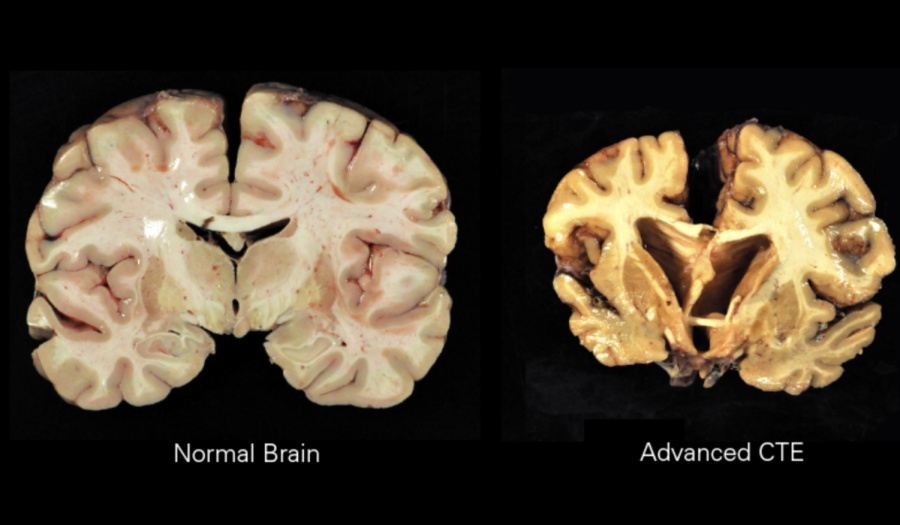CTE: A Growing Problem?
December 5, 2022
Over 300,000 traumatic brain injuries occur each year due to sports in the United States. Contact sports such as football, hockey, and boxing are among the highest risk for obtaining a traumatic brain injury (TBI). A concussion is when a sudden jolt or hit to the head causes the brain to crash against the inside of the skull, which can cause damage. Although not usually life-threatening, these concussions can lead to serious implications if not treated. They can lead to the development of conditions such as Post Concussion Syndrome (PCS) or Chronic Traumatic Encephalopathy (CTE).
Post Concussion Syndrome (PCS) is a syndrome that can mimic the symptoms of a concussion long after it has healed. A person who has PCS will experience the symptoms of a concussion months after it has occurred and healed. Symptoms may include headaches, nausea, sensitivity to light, dizziness, fatigue, and loss of memory. PCS usually heals in about 3 to 5 months but may take years to fully recover.
Chronic Traumatic Encephalopathy (CTE) is a degenerative brain condition caused by excessive concussions and head injuries. It occurs when the layers of the cerebral cortex start to deteriorate due to excessive trauma over a long period of time. Over time, this slow deterioration often leads to the development of diseases such as dementia and Alzheimer’s. There is currently no cure for CTE and no way of diagnosing someone with the disease until a biopsy is performed after death.
However, new technology continues to develop for sports helmets and mouth guards that work to reduce the impact on the head. Reducing the number of concussions significantly lowers players’ risk of developing either PCS or CTE. Coaching using the right technique for tackling in football, body checking in hockey, and heading the ball in soccer will help reduce the risk of concussions as well. These techniques will make contact sports safer and more enjoyable for all.
Scituate High School has taken significant steps forward in terms of these techniques and protocols. Every student-athlete must perform an online impact assessment that tests the brain through puzzles and memorization tests. These impact tests allow concussions to be diagnosed and recovery to be evaluated. They ensure safety for all athletes and significantly lower the risk of developing PSC or CTE.
New F7 football helmets have also helped reduce the amount of head trauma that Scituate High School athletes face. The F7 is among the new helmet designs that earned a 5-star rating with its effectiveness in protecting against head trauma. The new helmet technology along with new concussion protocols significantly lower the horrible impacts of head trauma.
It is important for parents and players to understand the risk of playing a contact sport. CTE and PCS are legitimate problems that athletes and families should be aware of. Protecting the brain should be the main objective for those playing contact sports. Head trauma has lasting effects throughout one’s life, which is why it is imperative to avoid brain injury. Scituate Public Schools has worked to advance the protective equipment and protocols to promote head safety in all sports. Whether it’s through new helmet technology, coaching techniques, or refereeing, protecting one’s brain in contact sports will greatly improve the future of student-athletes.
